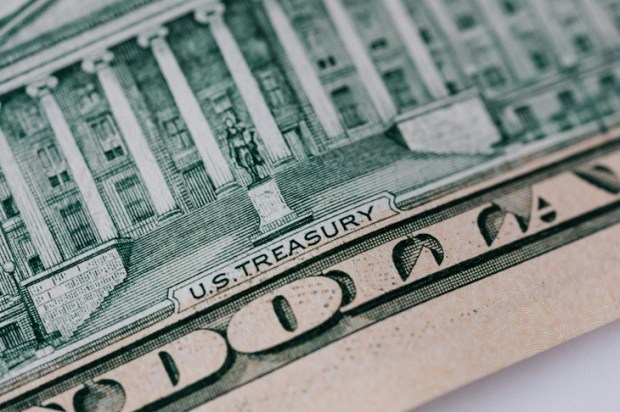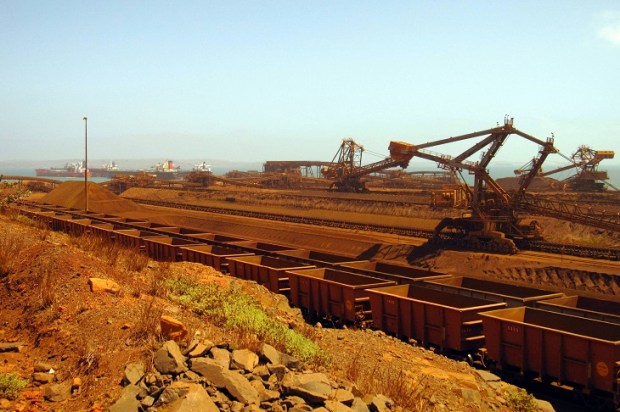Nowadays, it’s almost impossible to miss the bombardment of virtuous sentiment surrounding climate change. We’re constantly told by the 21st Century’s high-minded that we have an obligation to radically reduce our carbon footprint, a social contract of sorts, under which we must significantly curtail our way of life to make way for a new era of sustainable governance.
The irony of course being that a swift attempt to transition from the only proven and formidable energy sources humanity has ever seen to renewables is just about as socially irresponsible as it gets.
Now in saying this, I’m not at all denying the existence of anthropogenic climate change. The science encompassing the topic has incontrovertible merit that the world would be foolish to altogether ignore. I’m simply purporting that in addressing this issue, our politicians have chosen to prioritise ideology over practicality to win elections and have turned their backs on the realities of engineering and economics.
I’d go as far as proposing that those who advocate for such a transition have zero regard for the livelihoods of everyday Australians whatsoever. It’s all well and good for a former private schooler turned ESG consultant to push for the closure of our nation’s major power stations, but who actually bears the brunt of such an initiative?
Australia’s largest coal-fired power plant, Eraring, is set to close in 2025 because of the rapidly transforming national energy grid’s supposed inability to accommodate for ‘traditional baseload power stations’. Eraring accounts for 25 per cent of NSW energy generation.
It gets worse. Liddell power station in Muswellbrook, which has been operational for over 50 years, will close down in April to make way for the ‘much cheaper and more efficient’ Hunter Energy Hub Site that will be home to wind, solar, hydrogen, and pumped hydro storage facilities. Liddell and its next-door neighbour Bayswater Power station both account for 30 per cent of NSW energy generation.
These two closures comprise just a fraction of bureaucratically enforced edicts that fall in line with our commitments to Net Zero. A recent study by the Institute of Public Affairs found that these mandates will have devastating consequences not for those in the cushy and lavish suburbs of Mosman, Bondi, and Paddington where many of their supporters reside, but for working-class Australians in the regions. The electorates that will suffer the most from job losses and a spike in energy prices are the Upper Hunter, Barwon, Cootamundra, Murray, and the Northern Tablelands.
Then there’s the stark reality of greenflation.
The expedited crusade to cool down the planet is quickly heating up an already bloated economy which, because energy is needed for manufacturing almost everything, is driving up prices in nearly every sector. The world is currently facing unforeseen economic challenges in which decades of quantitative easing combined with an immense global supply chain crisis is making for inflationary doom. A rushed transition in energy will only stab a nail in the coffin.
Energy is needed . It isn’t just power prices that are set to skyrocket. Australia’s most vital primary producers and manufacturers have relied on cheap energy for decades to maintain a steady supply of affordable goods for you and me. Since July 2020, oil prices have risen by over 158 per cent, coal prices 530 per cent, and natural gas prices 174 per cent. In the same time frame, our national consumer price index (CPI) has risen almost 8 per cent.
Now correlation doesn’t necessarily equal causation, but anyone who studied Year 11 economics could tell you that if farmers, for example, are presented with greater wholesale energy bills, they will simply pass it on to consumers at the checkout.
Advocates for a swift transition profess that the bleak economic ramifications are simply the price that we must pay in upholding a social contract with future generations, that we are somehow all in this together. We simply aren’t.
Greenflation, just like regular inflation, disproportionately impacts working-class families because they spend the majority of their income on necessities like food, gas, and rent. When prices take a hike, middle-income earners can simply downgrade to cheaper alternatives. Lower-income individuals don’t have access to that luxury. In most cases, they are already purchasing the cheapest goods available.
So, instead of funneling endless swathes of taxpayer dollars into green projects that are unlikely to be feasible for the general population and will only exacerbate existing structural issues within our economy, it’s time to take a different tact. The answer lies within the banking system.
Like most of Australia’s major corporations, our commercial banks have adopted an ESG-incited form of corporate governance which accounts for the basis of this ruinous energy transition. In the last decade, the big-4 have pledged to replace their funding of projects in the coal, gas, and oil sectors for more sustainable initiatives. National Australia Bank (NAB) implemented a $2.4 billion cap on lending to oil and gas companies, whilst Commonwealth Bank (CBA) said in 2019 it would phase out its exposure to fossil fuel-fired power plants by 2030.
If green politicians really are looking out for future generations as they claim, they should focus on bringing an end to decades of expansionary monetary policy that has built a monolithic pile of debt waiting to be repaid by our children and grandchildren. They would cease the endless supply of credit now given to green energy infrastructure that will only inflate this economic burden and look to instead provide funding to industries that will boost the supply of critical goods whilst providing countless opportunities for employment along the way. That’s what true progressivism looks like.
Remember, the ends don’t justify the means and energy is no exception. It’s interesting that hard-line environmentalism coupled with austere mandates is now considered humanitarianism by many world leaders. I’d personally consider the search for a reliable energy source that will gradually diminish carbon emissions without destroying entire industries, economies, and livelihoods as a more ‘humanitarian’ approach.

























